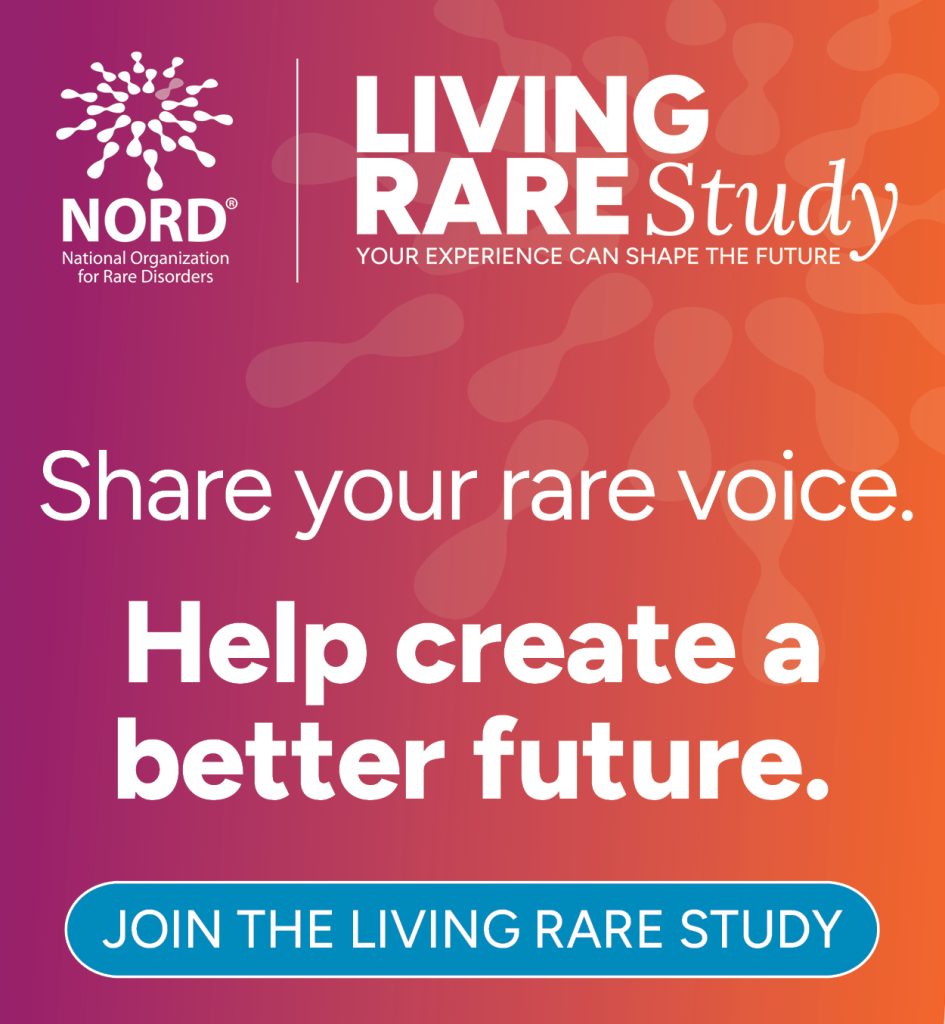*The following is a a guest blog posting by NORD’s Director of Research Programs, Vanessa Boulanger, originally published 2/28/18 on PCORI.org at https://www.pcori.org/blog/changing-landscape-rare-disease-research?utm_source=general`
A rare disease, by definition, affects fewer than 200,000 individuals in the United States. Up to 30 million Americans have a rare disease, and most conditions are poorly understood. The National Organization for Rare Disorders (NORD), the voice of the rare disease community, and PCORI are working in tandem to change that.
Today, PCORI joins NORD and other organizations in recognizing Rare Disease Day. We spoke with NORD’s Director of Research Programs, Vanessa Boulanger, about the importance of patient-centered research for people with rare diseases.
Tell us about NORD’s interest in research.
Expanding the foundation of rare disease information is central to NORD’s mission. We aim to remove barriers to participation in research and reduce disparities in the burden of disease across rare diseases. To do this, we offer an equal opportunity to all rare disease communities to contribute their data to advance research, quality clinical care models, and development of new products.
What areas of research does NORD emphasize?
NORD has two primary research initiatives: the IAMRARE Registry Program and the Research Grant Program. We are actively engaged in expanding both programs this year.
The IAMRARE Registry is a patient-driven natural history registry platform that promotes patient engagement and empowerment. The first natural history study registry launched on the IAMRARE platform in 2014 with the aim of recording the natural progression and evolution of a rare disease, collecting longitudinal data and assessing changes over time, and capturing event-based data. Since then, our rare disease registry consortium has grown to 15 registries, and we anticipate that number will double this year.
In 2019, we will mark the 30th anniversary of our Research Grant Program. NORD has awarded more than 150 grants and fellowships, with more than $7 million in approved funding. The program provides seed funding to researchers conducting translational or clinical studies related to the development of potential new diagnostics or treatments for rare diseases. NORD’s grants are often the only source of funding for studying a specific rare disease. This support has led to the development of at least two FDA-approved therapies.
What value does the patient-centered research that PCORI funds add?
PCORI and NORD have synergistic research philosophies and a history of partnership. PCORI’s support for a research process centering on patients’ voices is proactively changing the research landscape and discourse. This shift is incredibly valuable, as is PCORI’s support for innovative, applied research programs that result in changes to practice across the research spectrum.
Because we don’t have a strong foundation of knowledge in many rare diseases, the patient voice is even more critical to the development of evidence-informed research programs, clinical standards, therapies, and policies.
We are so grateful for PCORI’s support for rare disease research and for its engagement and building of communities that can support patient-centered outcomes research. Each project makes a unique contribution. With PCORI’s support, NORD partnered with the University of Maryland’s Eleanor Perfetto, PhD, to develop a training program for rare disease patient advocates, who expressed an eagerness to make research more meaningful to their communities. NORD has since adapted this initial project to develop the Rare Action Network, a program aimed at engaging patients, families, caregivers, researchers, industry partners, and clinicians in rare disease advocacy.
Another PCORI-funded project, led by Dmitry Khodyakov, PhD, of the RAND Corporation, involves patients with rare diseases in developing clinical guidelines and measurements for assessing patient-centeredness. Developing and revising standards of care are priorities for NORD, which facilitates patient involvement in the process.
How does patient-centered research impact the lives of people with rare diseases?
Patient-powered natural history studies can transform how patients and caregivers inform and shape medical research and translational science. Our registry community has already seen numerous successes demonstrating the far-reaching impact and value of these studies and of the IAMRARE Registry. These successes include the discovery of previously unexplored indications in different body systems that relate to the progression of a disease. For example, one project found that an increased risk of oral health problems among patients is associated with a rare type of tumor.
PCORI’s support for a research process centering on patients’ voices is proactively changing the research landscape and discourse.
Patient-centered research empowers patient populations to share their personal experiences to inform the design and real-world application of research. By working with and on behalf of patients to fill knowledge gaps and promote equitable and sustained progress in research, NORD aims to improve clinical care, advance new product development, and generate data across all rare diseases.
Our commitment to offering bold and innovative initiatives serves to address the complex needs of patients with rare diseases and their families. At NORD, we firmly believe that research has the power to inform and transform people’s lives. We are proud to do all that we can to create meaningful change for, and alongside, the rare disease patient community.
PCORI has funded 28 patient-centered comparative clinical effectiveness studies to help patients and those who care for them make better-informed decisions about treating rare diseases.
Studies include a comparison of inpatient and outpatient management of recovery from chemotherapy for children with acute myeloid leukemia, a comparison of two medication regimens for reducing symptoms of pediatric Crohn’s disease, and a comparison of care for people with sickle cell disease in infusion centers versus care in emergency departments.
For more information, see PCORI’s fact sheet, Research Topic page, and a list of our rare disease projects.





